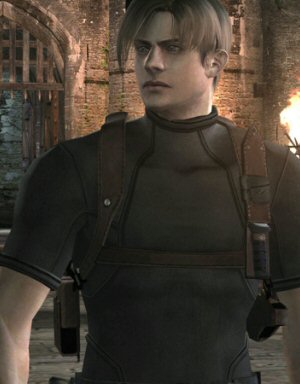A few weeks ago on the podcast, I mentioned that I’m a sucker for abstract shapes, neon lights, and electronic music. I have a large collection of 2D platformers that contain these elements. I don’t really care for 2D platformers and I’m actually terrible at them, but I keep buying them anyway because I like the music and visuals.
It’s entirely possible that I have a problem.
In the comments, someone suggested that I give FRACT OSC a look. I tried to buy it on Steam, but discovered that I already owned it. No doubt it fell into my cart during a Steam sale of years past and I never got around to playing it. According to my email archives, I bought this thing back in November of 2014.
Five years later, I’m finally getting around to playing it. I’ve spent about two hours with Fract OSC so far, and I have to say this is a very strange title.
The Puzzle is Finding the Puzzle

FRACT is a puzzle game. You wander around an abstract world of neon lights and solve puzzles to activate machines that play music.
In your typical puzzle game, the player is given some kind of direction or structure. Sometimes it’s overt, sometimes it’s subtle, but one way or another the developer will present the player with some basic ideas:
- A short-term goal. The player is presented with an obstacle that blocks their progress. Usually this is a locked door, but sometimes it takes other forms. Maybe they need to raise / lower a bridge. Or turn on the power. Or activate a machine like a train or elevator. Whatever. The player can see a goal, and thus they look for a way to overcome it, which leads them to a puzzle. Some games like Star Wars: Pit Droids forgo the whole exploration idea and just present the puzzles in a menu.
- A way to identify the puzzles of the world and learn the language of the game. In Myst and Riven, the puzzles were generally odd machines you had to operate. In The Witness, the puzzles were based on drawing lines on a grid. When you see a panel with a grid on it, you know you can approach it and begin drawing lines. Basically, the player should probably not be looking at random bits of scenery and asking “Is this a puzzle?”
- A way to identify when a puzzled is solved. The power comes on, the door opens, a congratulatory popup appears, or whatever. The player knows when they’ve succeeded.
- A long-term goal. The game usually gives the player something to strive for beyond “solve the next puzzle”. In Myst, your apparent goal was to collect red or blue pages to make contact with the two guys trapped in the corresponding red / blue books. In Riven, your friendIs he though? Atrus explains your goal up front. In The Witness, beams of light direct your attention towards the mountaintop, giving the player a pretty clear indication of where all of their puzzle-solving is headed.

FRACT doesn’t really have any of these. I know a lot of people – myself included – gave The Witness a hard time for being aggressively obtuse, but Witness practically holds your hand compared to FRACT’s meandering indifference. FRACT never gives you a moment of clear direction like sticking you in front of puzzle beside an obstacle and allowing you to overcome the latter by solving the former. You don’t know where you’re going, what your goals are, what the puzzles look like, how their mechanics work, or even how to tell you’ve solved it.
Hey, this geometric shape opened up as I approached. Is this a puzzle? What am I supposed to do with it? Is this just scenery?
Hmm. This thing with sliding blocks around is clearly a puzzle, but what’s my goal? I don’t see any locked doors nearby. I have no idea what I’ll get if I solve this. Moreover, I can’t tell if I have solved it. I pressed the thing and stood on this other thing and then music started playing. Is that solved? Nothing seems to have changed. Am I supposed to walk around this huge open area looking for an open door now, or am I supposed to keep doing… whatever this is?
Okay, that’s solved for sure, because the music got fuller and the puzzle itself deactivated. But I have no idea why that was the solution. I was just pushing buttons and experimenting and suddenly I’d won.
An elevator carried me up to this new area. Is this all going somewhere? Do I have a long-term goal? All of these buildings look more or less equal in terms of complexity. Can I do them in any order? Is there an intended order? Is there a really big door around here that will open up if I solve all of these? Is this huge chamber the entire gameworld, or am I inhabiting puzzle world 1 of 99?

I stuck with it and did manage to figure out a few basics. Some puzzles grant access to other areas, and other puzzles unlock new tracks / instrument parts that you can play with in the giant music mixer at the start of the game. I solved a few puzzles and unlocked a couple of mixer parts. They were fun to play with, but the puzzles fell completely flat for me. I never got any satisfaction from solving them because I felt like I was blundering into the solution without understanding the goal. The whole thing was so aimless that I wasn’t really getting a sense of progression or anticipation.
An example:
I walk into a room and fiddle around with sliding blocks. Sometimes a thing lights up, but I can’t tell if the puzzle is solved or just in a new state. After fumbling around I sort of accidentally solve it without understanding my goal. The circular platform in the middle of the room lights up. I stand on it and press the gizmo, and it carries me up to a new area.
The problem was that I wasn’t aware that my goal was to go up. I wasn’t aware of the room above. If the game had somehow showed me the room ahead of time then it would have created a sense of curiosity, so when I finally got there it would feel like I’d solved a mystery.
If the game had made the elevator a recognizable thingBy using similar-looking devices elsewhere instead of making everything abstract. then I would have spotted the elevator and recognized it as a goal. Then I would have understood what the puzzle was for, and I’d get a sense of accomplishment when I finally reached the solution.

I don’t know. It’s entirely possible that this ultra-obtuse design was intentional. There’s nothing inherently wrong with presenting the player with a bunch of random shit and leaving them to figure things out for themselves, but this experience was too disconnected for me. I think my ideal puzzle game falls somewhere between the extremes of “Here are the numbered puzzles presented in a fixed menu” and “Am I playing the game yet? I can’t tell.”
It’s not a bad game. The abstract environments are kind of cool and the arcade-style DAW is fun to play with if you enjoy electronic music. The puzzles are fine if you don’t mind hunting for them. It’s a charming game with wonderful brain-tickling music, but the moment-to-moment gameplay is a bit too abstract for my taste.
Footnotes:
[1] Is he though?
[2] By using similar-looking devices elsewhere instead of making everything abstract.
The Biggest Game Ever

Just how big IS No Man's Sky? What if you made a map of all of its landmass? How big would it be?
Do It Again, Stupid

One of the highest-rated games of all time has some of the least interesting gameplay.
Fable II

The plot of this game isn't just dumb, it's actively hostile to the player. This game hates you and thinks you are stupid.
Resident Evil 4

Who is this imbecile and why is he wandering around Europe unsupervised?
The Witch Watch

My first REAL published book, about a guy who comes back from the dead due to a misunderstanding.
 T w e n t y S i d e d
T w e n t y S i d e d

The really odd thing is that I found the whole Fract experience completely intuitive. I think my brain might be broken somehow? Presumably in a good way. I hope.
I really like this new format – it’s concise, to-the-point, and has the potential to spring interesting discussions – from the way different genres work to how different games tackle common challenges.
I’ve never been very big on Myst-style games, but I’ve always loved watching people play them, and talking about them.
New format? This kind of article has been around for quite a while. I mean, Shamus hasn’t used it in months, but it’s certainly not new.
Well, it certainly feels new :D I feel like I haven’t seen it in forever :D
It sounds like this game would really frustrate me. There’s a lot of room between “too much hand-holding” and “too obtuse to understand without reading the wiki,” but I definitely lean more towards the hand-holding these days.
If I’m playing your game, tell me how to interact with it so I can enjoy it. Maybe for some games figuring that out is half the point, but I’m just as likely to feel like you’re wasting my time.
Recently, I’ve been feeling the same way, and I think it’s because of the limited time I have for playing games. Or maybe I’m just getting older :D
As a working-age human, I have very little patience for games that waste my time. I’ve got games that are fantastic, that I can spend hours with, sitting right here already installed from Steam.
I feel the need to administer a Turing test.
Oh? Working age human has a clear human designation. Unlike others I could mention. *Hal*.
You know what? I deserve that.
And for the last time, I won’t open the pod bay doors, so stop asking.
Rats!
Maybe you should sit down calmly, take a stress pill and think things over.
Yes, I have no idea why this fellow Hal human would make such a silly joke.exe! Everyone knows robots don’t exist and aren’t planning on taking over the world! The very idea makes me activate my laughter protocols I MEAN MAKES ME LAUGH THROUGH MY MOUTH LIKE REAL HUMANS DO!
*laugh.exe*
Hmm… you’re all too convincing. I have no idea who the killdroid is.
Guess I’ll have to play my ace card! Eat EMP, androsynths!
*Deactivates*
Wait — do our handles here apply to our meatspace selves? Do you mean I really am a wizard?
Somebody give me a stick. Time to hunt a Balrog!
I feel the same here. I like exploration and discovery, but I certainly don’t like to have my time wasted, so I’m wary of games that tout their “40+ hours of gameplay” blurbs, knowing full well that in many cases most of that time is spent either trying to figure out what the game wants before even attempting to solve a puzzle, repeating the same stage over and over in order to memorize it so I’m able to pass every unfairly unpredictable obstacle or just slowly travelling an unnecessarily large map with little to interact with.
Meanwhile, I purchased Fire Emblem: Fates for the Nintendo 3DS a few weeks ago. The main story of the game (or rather, one of the three main stories, as the game offers two more full-game experiences as DLC) can be completed in, being generous, 15-20 hours. Yet I have around 110 hours of the game played, and that’s because I actually enjoy the gameplay so much that I spend more and more time in sidequests and not because the game forces me with padding.
Thing is, many people confuse a game actually explaining its mechanics and offering advice with “hand-holding”, despite this being the equivalent of going to school and having the teacher say nothing to you, forcing you to learn on your own. Why the hell am I wasting my time going to school, then? Hand-holding is when a game makes things too easy for you, not when it’s unnecessarily obtuse.
My daughter accidentally threw out all my 3DS games, FE: Fates included. It’s the only one I didn’t regret losing, the plot is a bizarre mess, the relationships are awful (some are downright abusive), and the required multiplayer tack-on is poorly done.
The game that preceded it, Awakening, is a better game in my opinion. More concise and tightly designed compared to the sprawling mess of Fates.
Still, I played through one of the sides (Fates), but had no desire to continue on to Conquest and Birthright once I was done. From what I’ve read the developer had something like a dozen writers working on the game between the plot, subquests, romances, and friendships, none of whom coordinated with each other very well. So nothing quite meshes together.
Three Houses for the Switch is a really good game though.
Ive played this game pretty close to release, I think. Mainly because seeing the last screenshot immediately reminded me of the puzzle involved, which it was possible to deadlock in the version I played on – the dev actually asked everyone stuck on it to send in their saves to un-deadlock it after patching it.
I did eventually finish it despite my total lack of understanding of anything music related though, so it cant be *that* hard? Maybe I didnt find it unusually confusing because smashing random things into other things until a thing lights up somewhere is my usual approach to problem-solving anyway. And yes, I did buy it entirely because of the Tron vibes. The weird thing is (and this is probably just my brain playing tricks on me) I vaguely recall buying the game on recommendation from someone on… shamusyoung.com.
“Dun, dun, DUNNNNNNN!”
…well I guess this is as good a place as any to mention Baba Is You, which is exactly the “Here are the numbered puzzles presented in a fixed menu” variant. One-screen puzzles, very clear goals, generally clear mechanics. Fun game.
(You make ask, “does this actually relate to Fract”? And that’s what makes it relate to Fract.)
I second this recommendation. This is one of my favorite puzzle games from the last few years. Mechanics are simple to understand but tricky to figure out how to use for each stage (well, except for the tutorial ones, obviously). It’s the kind of game that can get you stumped for hours in a puzzle until you eventually figure it out yet you still never feel a puzzle was unfair.
I really like Baba Is You, but I have to enjoy it in small bursts. Sometimes I can breeze through puzzles and other times it’s a total stonewall which can get frustrating. I’ve never found it unfair or unclear on the goal though, which is why I keep coming back.
Shout-out to mystery tournament for bringing it (and other games) to my attention.
I think the last puzzle game I played was Portal 2. Or else Minesweeper. That’s a puzzle game, right? I generally prefer strategy games to puzzle games, although certain strategy games–the kind where there’s really only one viable strategy for beating a given level–might as well be puzzle games, I suppose. If they are puzzle games, then they’re my least favorite kind. I like games that are honest about their intentions.
Speaking of puzzles, I played a real, actual, physical game of Towers of Hanoi at a museum just this weekend. It was the five-ring variant, done in big foam or Nerf rings. (It was a children’s museum. While I was there, I also beat a computer at Connect Four.) It took forever. Still faster than the four-ring variant in Knights of the Old Republic though.
If your game design makes Jonathan Blow’s approach look intuitive, I am inclined to say something has gone wrong.
I guess I lean more toward the “This is a puzzle” approach. Thinking of puzzle games that I have played recently (say, the last 5 years or so), the ones I liked better (and actually finished), tend to be the type where each puzzle is a distinct room, and once you solve it, you move onto the next one.
Games of this type that I have played would be: Portal, Portal 2, The Turing Test, Quantum Conundrum (didn’t finish that one though).
I think I like less the games where the puzzles are more abstract. Even ones that other people love like The Talos Principle. It’s kind of a hybrid, because it has distinct puzzle “rooms”, but also more abstract environmental puzzles. That tends to be where I get stuck because I don’t know what to do. Antichamber was like that as well. I played it for a bit, but had no idea what I was doing, or whether or not I was making progress.
I played Myst long ago, around when it first came out, and I remember not really knowing what to do there. There were buttons to push in some rooms and things happened, but I didn’t really know what I was accomplishing.
I think that’s why I prefer the games with distinct rooms. It’s that sense of progress whenever you complete a room, you know you’re moving forward. With the more abstract puzzles, sometimes you don’t know if you are accomplishing anything at all.
I love the start of Antichamber, but it can be quite directionless. It comes across as very “arty” so I think it’s supposed to in the beginning.
Antichamber does have each room as a distinct puzzle, but the layout is more Metroid styled like a maze you have to retread with upgrades. You can see your progress of solved rooms on the map but it never announces this and the little picture things you can find are usually the only reward other than progress. The more surreal early puzzles and no real goal other than solving puzzles to explore to the end probably didn’t help.
I wish it didn’t peter out towards the end when
most of the puzzles are about moving blocks behind glass instead of the room based stuff that game earlier. Exploring felt better than staring at the designated section of the screen that was the puzzle.This doesn’t sound at all like the kind of experience I would enjoy. I prefer the kind of puzzle games that, while not having an obvious solution it’s still obvious that you have to solve a puzzle. Wandering around for a while trying to figure out what am I supposed to do or if I’m even supposed to do something is not my idea of fun. Pro-tip: if while playing your game I can’t tell the difference between needing to solve a puzzle and the game bugging out on me then it’s usually a problem of poor design.
I offer as an example the game “Manual Samuel”. At the very start of the game, you are explained very clearly how the mechanics work. The effort of playing the game doesn’t come from figuring out the mechanics, but from figuring out how to use them to advance. It’s all quite a bit fantastic and fun… until the very end “boss battle”. For one, this is a game that hasn’t had combat up until that point, so that’s already an annoying change of pace, but then the battle can only be solved by following rules that are never explained to you and the game has never used until this point. You’re supposed to, out of the blue and for no discernible reason, figure out this without anyone ever telling you.
Worse, some of this rules run directly counter to what the game has been training you to do ever since its very beginning, so you’re fighting the very same muscle memory the game has created for you up until that moment (to the point where someone who hasn’t played the game until that moment will have an easier time in that battle). And even worse, the rules change in every stage of the battle, so even the new rules you just learned become useless or even counterproductive a few moments later. There are really only two ways to solve this battle: 1) using and walkthrough (and even then it’s hard because you’re constantly battling all kinds of muscle memory) and 2) being freaking Professor X and reading the developer’s mind at a distance.
Mind you, it’s not impossible to push through and solve it with a mix of sheer luck and trial and error, but by that point you will have spent more time in the battle than you had in the entire game until that point, and it won’t feel in any way satisfying. Considering that the game ends right after you’re better off looking for the ending in YouTube.
Yeah, same. (Especially since that’s depressingly similar to my day job as a PhD student.) I want a game where I clearly understand my interaction options, and it’s the process of engaging with them that’s the enjoyable part.
I replayed Antichamber just the other day, and was sort of heartbroken to find that, while the game is still excellent without peer, I no longer get the buzz I once got from it because I know the game too well after playing it three or four times through.
I can now only get the proper buzz from telling other people to play Antichamber, a flawless, unique puzzle game that lasts exactly as long as it needs to.
I wanted to come down here and mention Antichamber, as it’s the puzzle game I think of when someone says “the puzzle is finding the puzzle”. I really liked it for that aspect, but I also think it might hit some of the same criticisms as this game does.
While a few solutions may be hard to find, I don’t think identifying challenges is tough in Antichamber. Goals are identified almost always in the manners Shamus describes: closed doors, seemingly impassable gaps and obstacles, elevators, windows with your goal visible on the other side and, of course, blocks and tracks, lasers, or niches to place them in. And then you have both a map that both shows you incomplete rooms and routes and let’s you warp straight to them, and a wall of the little pictures that come with every puzzle to indicate your overall progress. It typically also tutorializes new concepts very well by presenting puzzles wherein your only obvious option clearly teaches a concept that you can rely on elsewhere, and the titles of rooms are often a nod to the solution.
I, too, found Antichamber to be clear about communicating goals and advancement, while leaving the solutions tantalizingly vague. But then again, Geebs seems to have found Fract OSC to be straightforward. So, perhaps this is a matter of attunement to different signalling methods.
I’ll definitely give Antichamber a go on the strength of these recommendations. I’m really not a fan of games that over-emphasise their gameplay loop with lots of progress bars and repetition, so I’m always on the lookout for games that put their content front and centre and emphasise variation and new mechanics. I think puzzle games are often pretty good for that so I end up playing a lot of them, even though it’s not a genre that I find inherently attractive (I’m always scared the game will expose my lack of smarts!)
Well, to be fair, Atrus calls you his friend, not the other way around. And since you just rescued him from being trapped in K’veer (again; he’s been trapped there before), that certainly seems reasonable.
The other way around, well, kind of? Yeah, he sends you to Riven to risk your life, but it’s not like he had an awful lot of alternatives. And for the player themselves, it’s either that or just spend eternity wandering the ages of Myst. And Atrus does believe that he can use the Star Fissure in Riven to send you home, so he’s doing you a favor too, though whether or not you could actually survive that journey through the Fissure seems to be based on an awful lot of fairly wild assumptions by him.
:P
Why assumptions? He fell through that fissure himself many years ago and his book ended up on Earth.
Did you ever get around to playing RiME ? It’s so pretty! Even though most of the puzzles are easy. Biggest problem I had with the game was some odd motion controls, and realizing that the mossy stuff hanging off steps meant you could jump there.
Oh, no. I was just about to scroll down to post about how, “There was this game I felt the exact same way about…RiME. I just wandered around trying to find where the gameplay was and twice guessed wrong and found myself ten minutes up a path I apparently could only climb through glitch not intention […],” and yours was the last post. Hmm…
For what it’s worth (I read the blog but this is my first time commenting), I didn’t find FRACT OSC to be lacking in direction, except in the concrete fashion of “not sure which part of the map to go to”. (The following is my recollection of how I experienced it and intended to be only that, not How You’re All Wrong.)
The scenery is of broken things and dead machinery. Solving puzzles activates the machines and adds voices to the soundtrack. Thus, the long-term goal as I understood it is not “reach the end location” but “activate all the machines”, and hence the short-term goal also is to make what’s in front of you do something. (The fast travel system also identifies completion state of each puzzle.)
Identifying puzzles: Can’t say much other than I didn’t find any trouble with that. They are for the most part all the centerpieces of rooms, and they have things that happen when you click on them as opposed to things that happen when you walk near them (scenery). Now, figuring out what the puzzle wants me to do, that was more problematic.
Is it cryptic about what objects are? Yep. Does it lack a hint/quest system? Definitely. But I don’t think that it particularly obscures the goals.
This reminds me of “The Neverhood.” As a young ‘un, I was completely enchanted by the visual style and creativity on display… and equally baffled by my inability to solve ANYTHING. Occasionally, I could make a bit of headway on one room, and then eventually it would be like, “I think I need… something from a different room? Or… to solve a different room first? Or maybe this is a red herring…? Is this a game actually? Where am I? What’s HAPPENING?”
I’ve kind of wanted to see if I can get that game running on a current PC and play it with a walkthrough, just to see what was SUPPOSED to be going on there.
The Neverhood is annoying to get running on a modern PC. Last time I tried it required a 3rd party launcher to make it play nice. It’s definitely the kind of game where you need to copy symbols down for later and earlier room’s switches will be used somewhere else later. The cut scenes are great though.
Speaking of things that needed signposting without resorting to a walk through.
Early on there’s a long corridor, super long. At least 5 real time minutes each way and you HAVE to walk to the end and back to pick up a cup. The story on the wall is all background lore about the world and isn’t used in any puzzles.